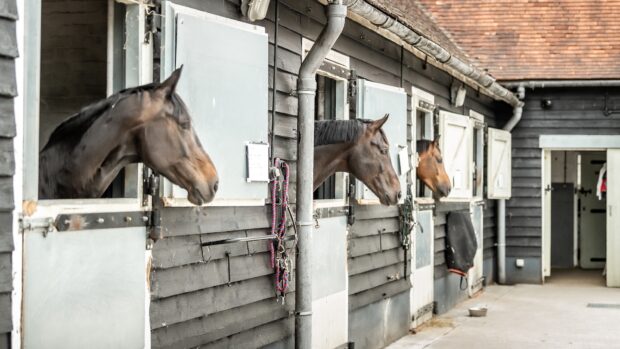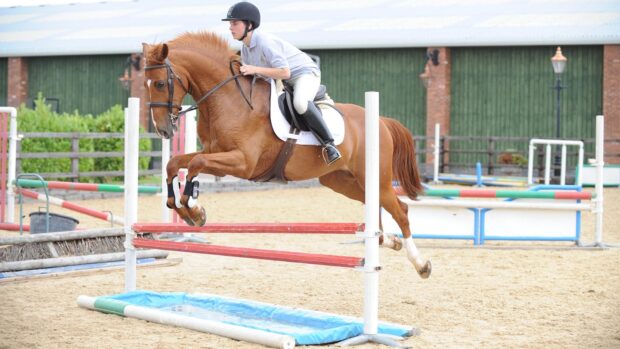Have you ever wondered whether turning out on frosty grass could be harmful to your horse’s digestive system, and even cause colic? With Britain facing yet another period of cold and frosty weather this winter, waking up to find your fields covered with a layer of frost first thing in the morning is a familiar sight.
But should you be worried about this causing colic in your horse? Not according to vet Kieran O’Brien MRCVS of Penbode Equine in Devon.
“Horses living out in winter can happily eat frosted grass every morning for weeks on end without suffering any adverse effect,” he says. “Evidence that frosted grass causes colic is only circumstantial.
“Frozen grass will be rapidly warmed in the horse’s mouth during chewing and mixing with warm saliva, and it will be further warmed as the grass travels down the oesophagus to the stomach.
“Furthermore, there are unlikely to be any significant frost-induced chemical changes in grass in winter such that colic would ensue. While it is easy to attribute an unexplained colic case to having recently eaten frosted grass, the evidence that this is a real factor is just not there.”
There are other factors to consider when trying to prevent winter colic:
1. Due to shorter days and wet ground turnout time typically decreases. Horses are stabled and immobile for longer and their grass consumption decreases, both increasing the risk of colic.
2. Horses don’t like drinking cold water. This, coupled with eating less grass — which is 80% water — increases the colic risk because water is essential for a functioning digestive system.
“Water maintains the fluidity of the contents [in the gut], ensuring easy passage through the twists and turns in the digestive tract, especially the colon,” explains Kieran.
“Excessive dehydration of the intestinal contents in a water-deprived horse can slow the passage of digesta, risking on obstruction of the colon and causing impaction colic.”
The following may help encourage your horse to drink more:
- Warm up the water. In one study, horses drank more when water was offered very slightly lukewarm.
- Feed soaked sugarbeet (soaked according to manufacturer instructions on the bag).
- Feed haylage, which contains 20% more water than hay.
- Add flavouring to water, for example apple juice or Ribena.
Also consider turning off automatic drinkers – which may freeze during very cold weather – and using buckets instead, so that you can monitor water intake.
You may also be interested in…

Winter colic: owners warned after a spate of calls
The British Horse Society said many owners have been in touch in recent weeks

Colic in horses: what every horse owner needs to know

Impaction colic in horses: signs, treatment and prevention

Subscribe to Horse & Hound magazine today – and enjoy unlimited website access all year round
Horse & Hound magazine, out every Thursday, is packed with all the latest news and reports, as well as interviews, specials, nostalgia, vet and training advice. Find how you can enjoy the magazine delivered to your door every week, plus options to upgrade your subscription to access our online service that brings you breaking news and reports as well as other benefits.




